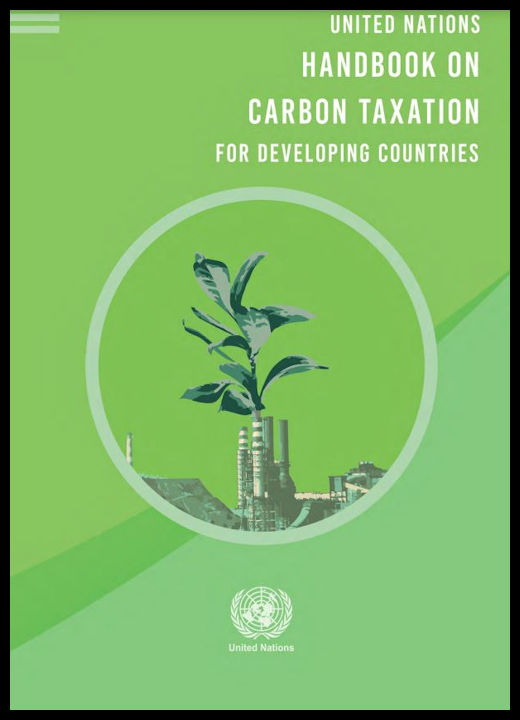Excerpt from
the “Foreword to the United Nations Handbook on Carbon Taxation for
Developing Countries,”
The
United Nations Handbook on Carbon Taxation for Developing Countries is a new
publication developed through the work of the United Nations Committee of
Experts on International Cooperation in Tax Matters (“the Committee”) and its
Subcommittee on Environmental Taxation Issues (“the Subcommittee”).
Environmental
taxes are an important part of the portfolio of economic instruments that
countries have at their disposal to address climate change and environmental
degradation. These instruments provide the dual benefit of expanding revenues
needed for public investments towards a green transition, while incentivizing
the reduction in emissions and pollution by giving economic actors a market
signal. Evidence also shows that environmental taxation and expenditure have
the potential to promote a range of macroeconomic benefits, such as increased
employment, economic diversification and improved competitiveness of domestic
industries.
For these
reasons, well-designed and implemented environmental taxes can play an
important role in building fairer, more resilient societies. Although tax is
only part of the solution, there is significant scope to make better use of
fscal policy to reach climate and environmental goals and to contribute to
sustainable development.
Environmental
taxes are on the agenda of many developing countries, both for generating
revenues and for meeting countries’ commitments on climate change and
sustainable development. These taxes figure prominently in the Addis Ababa
Action Agenda1 and have a key role to play in achieving the Sustainable
Development Goals. Further, the 2015 Paris Agreement on climate change requires
all parties under the UN Framework Convention on Climate Change to undertake
efforts to curb greenhouse gas emissions in the years ahead.
The
Covid-19 pandemic has renewed the urgency to shape more resilient societies and
to accelerate the fight against climate change with the goal of building a more
inclusive and sustainable future. To establish more equitable systems within
and among countries, the United Nations Secretary-General António Guterres has
repeatedly called for aligning all recovery efforts with the 2030 Agenda for
Sustainable Development and the Paris Agreement.
To make
progress towards achieving these commitments, the Secretary-General has also
called for efforts to shift the tax burden from income to carbon, and from
taxpayers to polluters. Some of the actions that countries can take to move in
this direction are putting a price on carbon, eliminating fossil fuel
subsidies, and fast-tracking renewable energy and green infrastructure
projects. Such approaches will increase the ability of countries to raise the
necessary revenues to respond to the climate and development crises and build
more resilient societies. …

